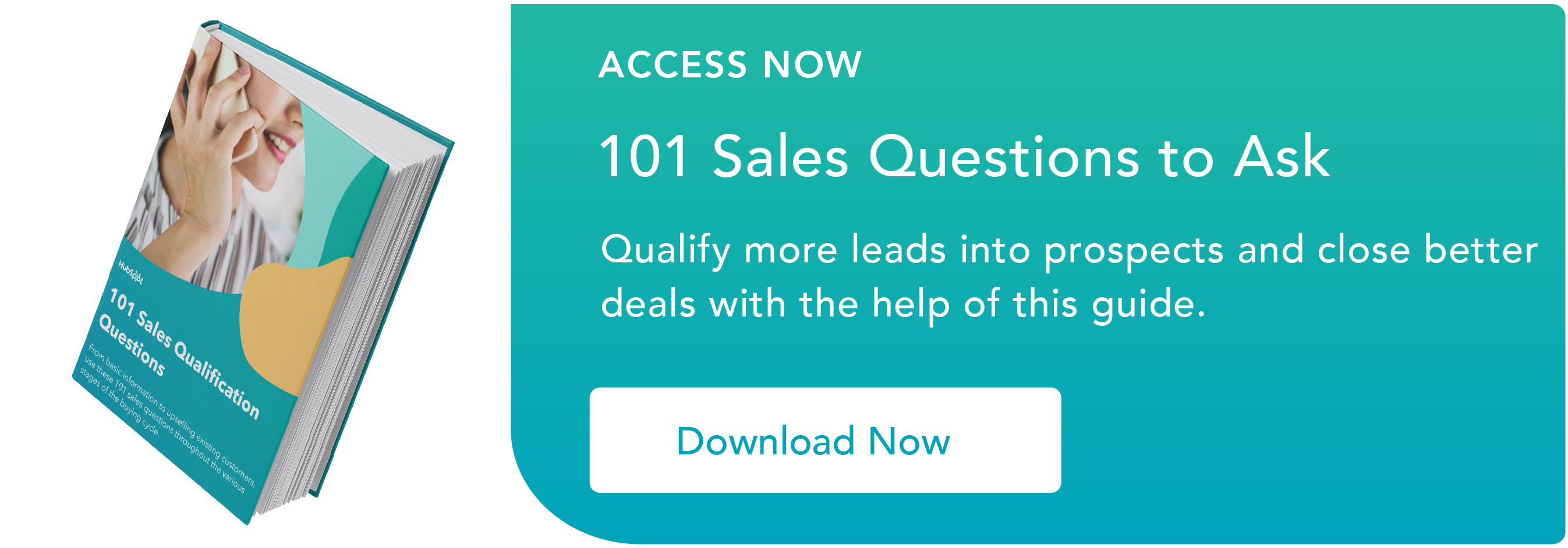1) “We’re just exploring our options at this time.”
What it means: You’ve caught the prospect while they’re still in the educational phase of their buying process. They tell you they’re “just looking” because they want to continue to maintain control of their learning process -- it’s too early for them to hand the reins over to a salesperson.
Ninety-eight percent of salespeople will take that at face value and allow the prospect to end the conversation. But this is the wrong approach.
How to handle it: A common -- but wrong -- response is, “Great, glad to hear you’re looking. Here are the 10 reasons I think our product would be a great fit for you.”
Instead, acknowledge that it’s a little early to be selling anything to your prospect. Say, “I see you’re still learning about this space. What in particular were you looking for help with today?”
This achieves three things.
First, you’ve taken the pressure off the prospect by acknowledging they’re not ready to buy. Many prospects use this blow-off phrase because they’ve gotten the hard sell too early far too many times before. Your prospect won’t be afraid to continue the conversation once they know you’re not trying to force them to buy anything right now.
Second, you’ve let the prospect know that you’re primarily concerned about their problems -- not the sale. Your questions aren’t about speeding up a purchase or even related to your specific service. Instead, you’re asking them what they want to learn.
Third, you get the prospect to think more critically about the problem they are trying to solve. They may not even understand what their problem really is or have the capacity to understand how to solve it. Probe a little deeper and ask follow-up questions, then offer some advice. Again, your advice should not be that your prospect drop everything and purchase your product.
After I’ve gotten a better understanding of my prospect’s problem, I say, “Let me just send you something on X topic that will help you be more efficient in your education.” I send over some helpful materials and thus establish myself as a source of help without being pushy.
2) “We don’t have any money.”
What it means: Your prospect hasn’t seen the value in your product yet.
How to handle it: This objection might come at the beginning of your first sales conversation, in which case your prospect is just trying to blow you off.
If, however, it comes after you’ve started specifically discussing your product or service, it means your prospect doesn’t see the value in what you’re selling. Your job is to show your prospect the path to ROI and emphasize value over price. After all, if you had a machine that would spit out five times what you put into it, you’d put all your money in -- maybe even borrow some to maximize your return.
A freemium trial is a great way to handle this objection as well. At HubSpot, we offer trials of our marketing software, so prospects can validate the product's benefits before they pay a dime. If you have a freemium model, take advantage of it. Nobody can tell you that a free product costs too much.
The most common variation of “We don’t have any money” is “This isn’t in the budget for this year.” Again, don’t focus on price. Establish a need and value first, then offer your help selling the product internally.
3) “We’re not ready to make a decision today.”
What it means: This is an objection commonly made during the closing call. Assuming your prospect is thoroughly qualified, this objection means they still need more information. It could also signify that your prospect is waiting to hear back from competing vendors.
How to handle it: Take a step back. Don’t be defensive. Ask your prospect, “Where are you at in the process? What else do you need to understand how our services can help you?”
If you’re in a competitive situation, ask what points of vendor differentiation your prospect is examining, and provide resources that show why your offering is the best option. If they simply need more information, drill down to the area they’re still uncertain about.
4) “Is this your best price?”
What it means: “Can I get a deal?”
This objection is usually accompanied by a wink. Your prospect wants to know if there are any levers they can pull to get you to lower your price -- for example, holding off on signing a contract until the end of the month.
How to handle it: Your prospect’s voice tone is critically important. How you respond to this objection depends on your ability to read your prospect. Do they sound like they’re ready to play hardball, or are they asking just in case?
You can either give a discount or hold firm. Your product is priced the way it is for a reason, so don’t give away the store! But if you can get your prospect to give you something in exchange for a discount -- a longer-term commitment, or a signed contract today, for example -- feel free to offer one.
These objections are the most common ones I’ve heard during my years selling, and the tips above have served me well. If you take the time to get to know your prospect and thoroughly understand their situation, it should be no problem to move past these throwaway blow-off attempts and have a real conversation.
Objection Handling








.jpg)
.jpg)


